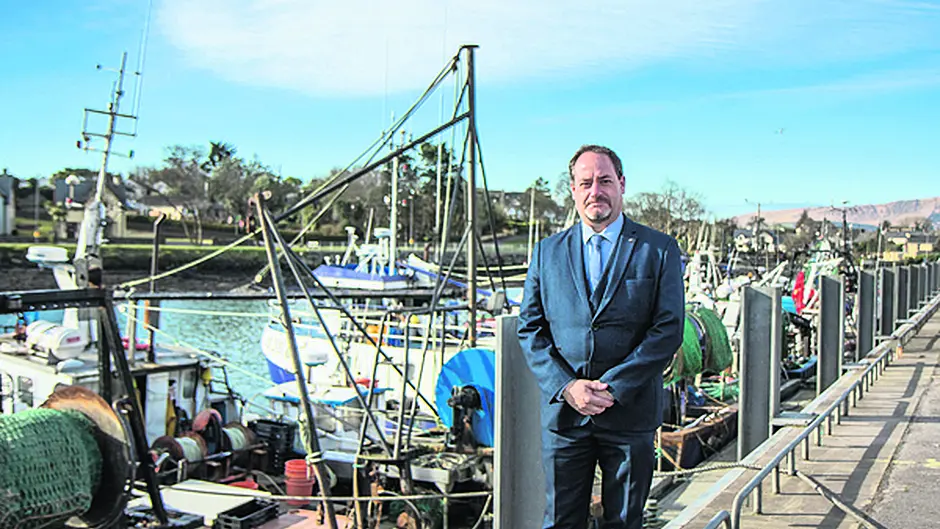Climate change is already impacting on the behaviour of fish in local waters– but policies are not acknowledging that and West Cork fishermen are suffering.
CLIMATE change is already impacting on the behaviour of fish in local waters– but policies are not acknowledging that and West Cork fishermen are suffering.
Some €110m of fish is landed in Castletownbere annually and the Beara peninsula’s socio economic survival is almost entirely dependent on the local fishing industry.
That’s outside of its importance in areas such as Kinsale, Union Hall and Baltimore.
Oceans have warmed at an unprecedented rate in the last 30 years and the rate of increase is accelerating all the time.
Some 30% of our excess CO2 has been absorbed into the oceans, which is acidifying marine waters worldwide and there’s the much talked about recent NUIG study which found that 73% of our deep water fish have ingested plastic particles, one of the highest frequencies in fish anywhere in the world ever reported.
Patrick Murphy, fisherman and CEO of Irish South and West Fish Producer Organisation based in Castletownbere said the industry was facing massive uncertainty because of these factors combined.
‘Warming waters are having a huge effect on fish – they don’t like to use it for spawning so they are moving further north. As they move out, other fish are migrating in including the enormously valuable blue fin tuna,’ he explained.
This fish is a double edged sword – on the one hand, Patrick said, it’s a ferocious predator.
‘We believe it’s changing the behaviour of other fish – namely Celtic Sea herring. Instead of shoaling in round balls, they are now staying closer to the bottom of the sea which makes it very difficult to get an accurate analysis of stock,’ he said.
‘In other words it makes it hard to arrive at maximum sustainable yields – ie to determine how many herring can be caught in a year without damaging stocks.
‘This makes it hard to develop business,’ said Patrick.
But secondly, although blue fin tuna are moving into our waters - in what is a new departure - in their hundreds of thousands, West Cork fishermen can’t touch them.
‘We have no quota for them and have to avoid them entirely. The Spanish and French can fish them.
‘Our fishing organisations are making representations in this area, but for us to be able to catch them would mean some of our EU colleagues would have to give up their share of them.’
He said this was one very clear example of how policies are not keeping up to date with climate-induced changes in fish behaviour.
‘Mackerel are also moving up the coast and not spawning in traditional areas but the problem is that we can’t follow the fish,’ he said.
The shell fish industry – a huge element of West Cork’s fishing industry – is also in danger.
Patrick is a mussel farmer out of Roaringwater Bay, along with colleagues, was caught-off guard with a much earlier than expected spawning cycle last May.
‘It was way earlier than expected, and that was due to climate change. We weren’t there for the spawning and missed it which is a major financial blow as you don’t get a year-on-year return from mussels.’
One option available to them to recover was to collect seed off rocks. However, that had only limited success due to persistent rough seas and dangerous conditions.
The mussel industry is going to struggle, he said.
‘There’s an abundance of fish stocks, but in general it’s going to be harder and harder to make a living.’










